HERI spearheads science code to tackle discrimination, harassment
The University of Cape Town (UCT) Faculty of Science’s new code of conduct promotes safety and well-being among staff and students, by tackling discrimination and harassment in classrooms, laboratories, during field camps and in other settings.
The newly minted code is aligned to UCT’s policy on discrimination and harassment, and linked to the university’s Office for Inclusivity and Change’s online reporting tool. It also includes broader links to UCT’s transformation plans and policies.
The development comes in the wake of growing rates of gender-based violence, and issues of equity and transformation at national and university levels.
Part behaviour guide, part action guide, the code of conduct was drawn up by Professor Rebecca Ackermann, the faculty’s new deputy dean for transformation, a post created by Dean Professor Maano Ramutsindela after he took office. Transformation, he said, is more than equity appointments; it needs clear policy guidelines on how the faculty conducts itself.
The code includes an agreement on behaviour and attitudes for all members of the faculty – staff, students and visitors alike. It takes two forms: There is a general code for all situations, as well as templates for more specific laboratory/research groups, and field contexts.
The various forms of the code cover issues related to safety, inclusivity and collegiality, including respect and etiquette; cultural sensitivity; promoting a discrimination- and harassment-free environment; undergoing prescribed safety training; defining inappropriate relationships; and handling work assignments.
As the code considers the wide range of cultural backgrounds and expectations of the faculty’s staff and students, the templates are tools for heads of departments, principal investigators and other researchers who head up projects, laboratories or field sites to tailor it to their needs and circumstances.
Drawing up a code
In the month she was appointed as deputy dean for transformation, Ackermann participated in an international panel-cum-workshop on field harassment. The group explored codes of conduct as effective ways of discouraging “unwanted behaviours”.
After gathering existing codes in various fields of study from local and international colleagues, Ackermann drafted a code to suit the faculty’s needs, taking in the African and South African contexts.
“In August, we workshopped the code further at our Human Evolution Research Institute (HERI) field camp for women, before presenting it to the Transformation Committee and to the Dean’s Advisory Committee for further discussion and approval,” she said.
It was formally adopted at the Science Faculty Board meeting on 9 October.
The local context is essential to shaping an inclusive code of conduct: “We [in South Africa] do not have Title IX mandated reporting as in the United States [a law enacted to prevent gender discrimination in the US educational system], and we have our own UCT policies on harassment and related issues. We appropriately contextualised it and broadened our code of conduct to make it consistent with issues relevant to South African society, like racism, bullying, violence, HIV status, and other culturally relevant issues such as food preferences.”
Harassment in field-based sciences
One of its main purposes, however, is to weed out behaviours and practices that deter women, and especially young women, from careers in science, hampering transformation.
Harassment has been a perennial problem in the field-based sciences. In 2014 PLoS One published a research paper, “Survey of academic field experiences (SAFE): Trainees report harassment and assault”, which found that harassment and assault were commonly experienced by respondents during trainee career stages – and that women trainees were the main targets.
Conducting research in the field exposed scientists to “negative experiences”, ranging from inadvertent alienating behaviour and unwanted verbal and physical sexual advances, to sexual assault, including rape.
The report noted: “These findings suggest that policies emphasising safety, inclusivity and collegiality have the potential to improve field experiences of a diversity of researchers, especially during early career stages. These include better awareness of mechanisms for direct and oblique reporting of harassment and assault, and the implementation of productive response mechanisms when such behaviours are reported. Principal investigators are particularly well positioned to influence workplace culture at their field sites.
“In our study, respondents were most likely to indicate that experiences of sexual harassment and sexual assault occurred when they were trainees. This suggests that the experience of harassment or assault during the early career stage may have the most negative impact on the most professionally vulnerable in our disciplines. Moreover, bystanders to workplace incivility, particularly women, are demoralised even though they are not the direct targets of the perpetrator.”
Faculty response
What has the faculty response been thus far?
“Very positive,” said Ackermann.
“People are glad to have the general policy, and the templates for their own use. Many academics and students have let me know that they appreciate that we are being proactive, rather than reactive. It helps to set expectations so that we can provide a safe environment for everyone.”
Having had early sight of the code of conduct proposal at the HERI field camp for women earlier this year, third-year archaeology student Wafeeqah Mohammed commented: “I didn’t know we had a policy for sexual harassment at UCT, so it was nice to be informed. It was good to hear from women who’ve experienced harassment. It made me more aware of what happens, not just in the field, but everywhere.
“I feel more prepared now … if it were to happen to me. The techniques mentioned in the workshop were very useful to understanding how to deal with the person and how to follow procedure.”
This article was originally posted by UCT news.
